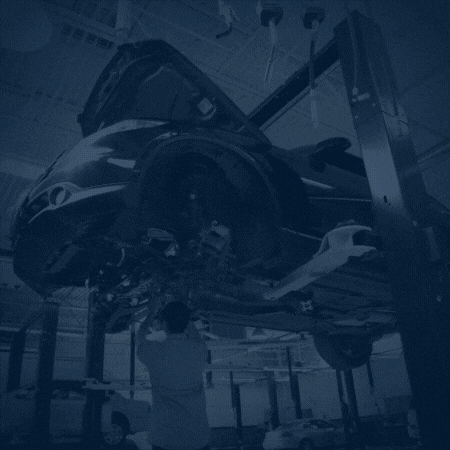Royal Academy of Engineering highlights that misconceptions about engineers and lack of understanding of the profession means young people are missing opportunities to make a difference to our world
- New research1 has revealed that 76% of young people aged 11 – 19 do not know a lot about what people working in engineering do
- Engineering careers can have a positive impact on our future society and environment. While 42% of young people aged 11 -19 think making a difference and having a positive impact on the world is important when choosing a career, almost half had not ever thought about becoming an engineer
- The Royal Academy of Engineering is launching This is Engineering Day on 6 November to raise awareness of what an engineer is, and to celebrate those who shape our future
Engineering could be one of the most poorly understood STEM careers, with new research from EngineeringUK showing that over three quarters (76%) of young people aged 11 – 19 do not know a lot about what those working in engineering do – and this could have far-reaching implications for all of us.
Indeed, according to the World Economic Forum, there are many engineering roles that will be crucial in positively shaping our future society and protecting our environment. However, the UK has an annual shortfall of up to 59,000 engineers3 every year, and research shows that the majority of young people aged 11 – 19 ‘probably or definitely’ do not want to become an engineer (52%).
Their parents need support in developing a greater understanding of engineering as well: 72% of parents do not know a lot about what people working in the profession do, and yet 63% of 11 – 16-year olds would consider going to their parents for careers advice.
The World Economic Forum2 has identified a number of jobs that will be in demand in the future and are crucial to shaping the world we live in for the better – and many of these important roles involve engineering:
–New Technology Specialists, who will make solar and wind energy more flexible and reliable by advancing energy storage capacity so that we can store vast amounts of energy from renewable sources to help us meet peak demand, mitigate future energy crises, and move away from carbon-emitting fuels.
–Information Security Analysts, who will make cyberspace safer, for example by preventing cyber-attacks or developing blockchain technologies that enable authenticated and transparent digital voting
–Software and Applications Developers and Analysts, who will, for example, enhance virtual reality (VR) for use in healthcare. Engineers are already developing virtual reality healthcare systems, complete with treadmills, to help people with Parkinson’s improve mobility, and exploring applications of VR that help sufferers of post-traumatic stress disorder (PTSD) and stroke.
–Innovation Professionals who will, for example, provide access to clean water in the developing world, and improve water efficiency in developed countries through new strategies for reducing water use.
While the research shows 42% of young people aged 11 – 19 said that ‘making a difference’ or ‘having an impact’ would be an important factor to them when deciding upon a career, almost half had not ever thought about becoming an engineer.
With an ambition to turn engineering from one of the most poorly understood, to one of the best understood and in-demand careers, the Royal Academy of Engineering is launching This is Engineering Day on the 6th November as part of Tomorrow’s Engineers Week. This is Engineering Day is a new national awareness day to increase understanding of what an engineer is and to celebrate the roles that will contribute to shaping our futures.












